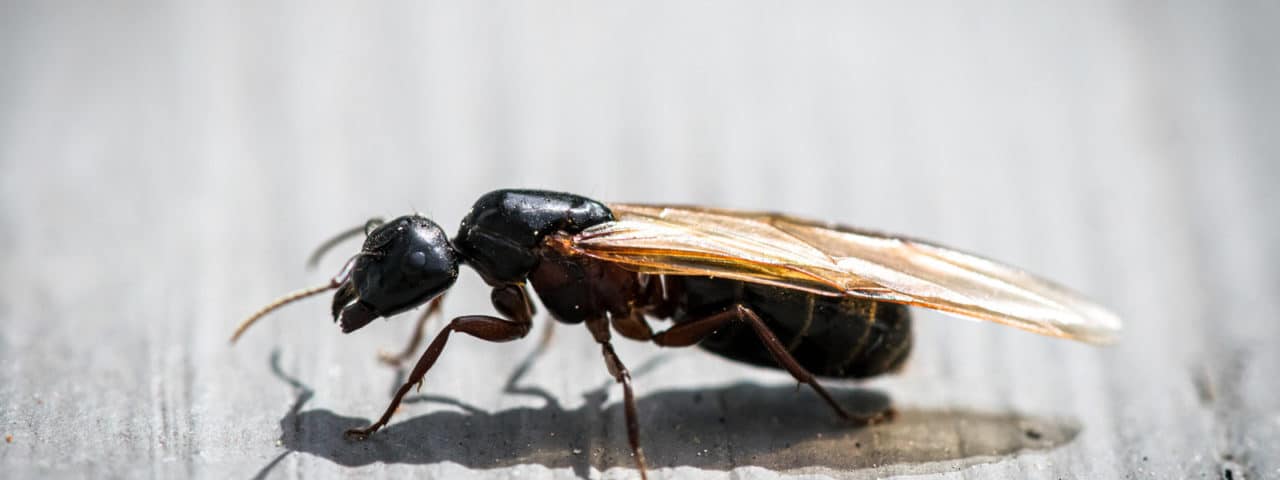Top Ant Control Services: Trusted Solutions for Your Home or Business
Top Ant Control Services: Trusted Solutions for Your Home or Business
Blog Article
Ecological Influence of Parasite Control: Balancing Effectiveness With Sustainability
The environmental effect of parasite control is a critical issue that requires a delicate balance in between attaining efficiency in making sure and handling insects sustainability of our ecosystems. From the use of harmful chemicals that permeate right into our dirt and water to the unintended repercussions on non-target types, the effects of conventional insect control techniques are far-reaching.
Damaging Chemicals in Pest Control
The application of dangerous chemicals in bug control presents significant environmental and wellness risks that necessitate cautious factor to consider and mitigation strategies. Insecticides, herbicides, and pesticides are commonly used to eradicate bugs, but their widespread application can cause unintentional repercussions. These chemicals can infect dirt, water resources, and the air, affecting not only the targeted bugs yet additionally helpful bugs, wild animals, and people.

To deal with these dangers, integrated pest monitoring (IPM) methods are being advertised as a much more lasting alternative. IPM involves a combination of techniques such as biological control, habitat control, and the targeted use chemicals as a last resource (ant control garner nc). By adopting a holistic strategy to pest control, we can minimize the ecological and health and wellness influences related to unsafe chemicals while successfully handling pest populations
Impact on Non-Target Variety
Taking into consideration the unintentional consequences of parasite control techniques, the influence on non-target types is a vital element that calls for complete evaluation. While pest control measures intend to target details insects, other organisms in the ecosystem might be accidentally affected. Non-target species, consisting of advantageous insects, birds, creatures, and also plants, can endure straight or indirect damage from pesticide applications or biological control techniques.
Insecticides made to combat a specific bug parasite may harm pollinators like or natural predators such as ladybugs. Biological control representatives, if not species-specific, can pose risks to unplanned targets, interrupting the eco-friendly equilibrium.
To alleviate the effect on non-target varieties, incorporated insect management (IPM) strategies that stress an all natural method to pest control are advised. These approaches prioritize the use of eco-friendly techniques, reducing harm to helpful microorganisms while effectively handling pest populations. Conducting comprehensive risk evaluations and monitoring the outcomes of insect control efforts are crucial steps in safeguarding non-target varieties and promoting total ecosystem wellness.
Soil and Water Contamination
Unintended ecological repercussions of pest control methods expand beyond impacting non-target varieties, with substantial effects for soil and water contamination - ant control. Chemicals, herbicides, and chemical fertilizers used in insect control can leach right into the dirt and pollute groundwater, posturing a threat to both marine and terrestrial communities.
Water contamination is another important concern associated with bug control practices. To alleviate dirt and water contamination from parasite control tasks, incorporated pest administration methods that prioritize sustainability and lessen chemical inputs are vital.
Air Contamination From Pesticide Usage
Direct exposure to airborne chemicals throughout agricultural applications positions a significant issue for air contamination control measures. When chemicals are sprayed onto plants, they can volatilize right into the air and kind unpredictable natural compounds (VOCs) and other airborne contaminants. These chemicals can add to the formation of ground-level ozone, a major part of smog that can have destructive impacts on human health and wellness, plant productivity, and general air quality. Furthermore, pesticide drift, where pesticides are brought by the wind to unexpected locations, can cause the contamination of neighboring environments and water bodies.

Techniques for Sustainable Bug Control
In the realm of farming techniques, applying lasting pest control methods is vital for keeping environmental balance and safeguarding plant yields. Sustainable bug control highlights making use of eco-friendly methods to take care of bug populaces efficiently while reducing harm to non-target microorganisms and communities. Integrated Pest Management (IPM) is an extensively embraced approach that integrates biological, cultural, physical, and chemical control techniques to accomplish lasting parasite management solutions.
One secret approach in lasting pest control is promoting biodiversity within agroecosystems. By boosting all-natural opponents of insects, such as killers and parasitoids, farmers can decrease the demand for artificial chemicals. Plant turning and diversity are additionally efficient techniques to interfere with pest life cycles and produce much less beneficial conditions for insects to thrive. In addition, utilizing pest-resistant crop varieties and utilizing techniques like catch chopping can help minimize bug stress without relying heavily on chemical interventions. Ultimately, by integrating these lasting parasite control strategies, farmers can accomplish an equilibrium between pest monitoring effectiveness and environmental stewardship.
Final Thought
Finally, the ecological influence of insect control approaches have to be meticulously considered to stabilize efficiency with sustainability. Damaging chemicals utilized in insect control can cause soil and water contamination, air contamination, and injury non-target species - ant control services. It is critical to implement sustainable insect control techniques to reduce these adverse impacts on the atmosphere and advertise a healthier environment for future generations
By taking on an all natural method to pest control, we can reduce the environmental and health impacts linked with hazardous chemicals while successfully handling pest populaces.

To reduce the air pollution caused by chemical use, it is crucial to take on integrated insect management strategies that focus on the use of non-chemical bug control approaches, such as plant rotation, natural killers, and address immune plant varieties. Sustainable parasite control highlights the usage of environmentally pleasant techniques to take care of parasite populaces successfully while decreasing damage to non-target organisms and communities. Integrated Parasite Management (IPM) is a widely embraced technique that integrates organic, social, physical, and chemical control methods to achieve long-lasting parasite management remedies.
Report this page